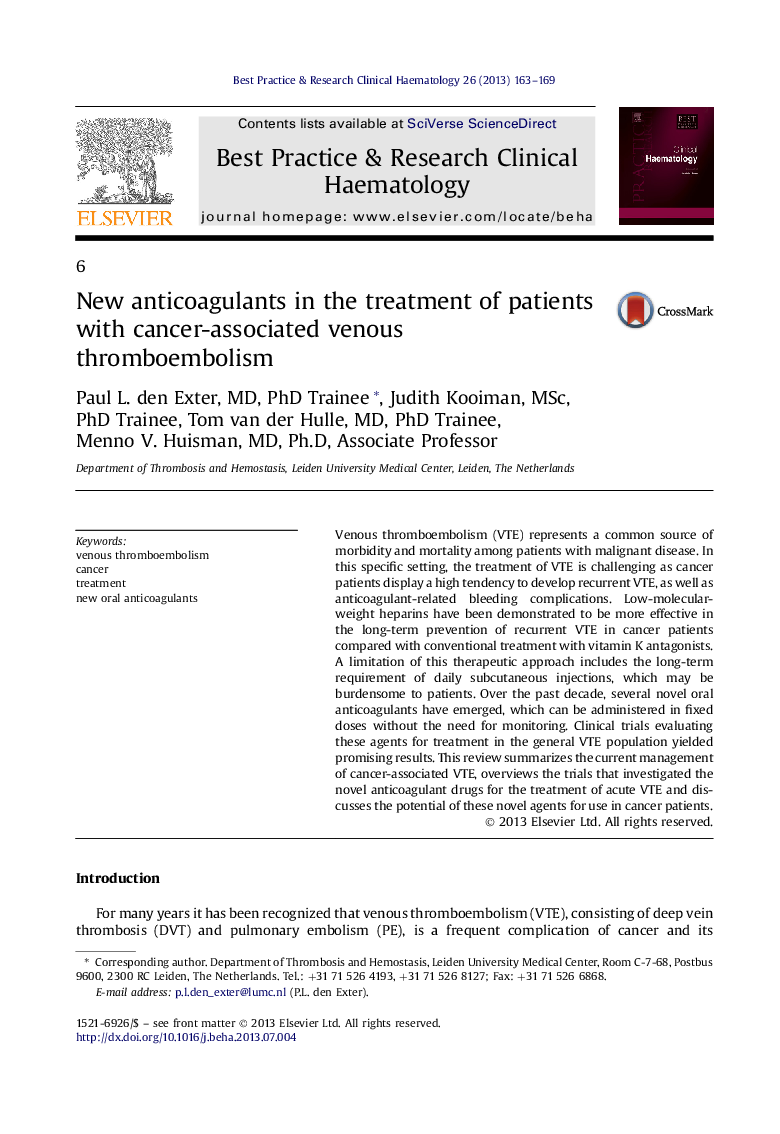| Article ID | Journal | Published Year | Pages | File Type |
|---|---|---|---|---|
| 2100696 | Best Practice & Research Clinical Haematology | 2013 | 7 Pages |
Venous thromboembolism (VTE) represents a common source of morbidity and mortality among patients with malignant disease. In this specific setting, the treatment of VTE is challenging as cancer patients display a high tendency to develop recurrent VTE, as well as anticoagulant-related bleeding complications. Low-molecular-weight heparins have been demonstrated to be more effective in the long-term prevention of recurrent VTE in cancer patients compared with conventional treatment with vitamin K antagonists. A limitation of this therapeutic approach includes the long-term requirement of daily subcutaneous injections, which may be burdensome to patients. Over the past decade, several novel oral anticoagulants have emerged, which can be administered in fixed doses without the need for monitoring. Clinical trials evaluating these agents for treatment in the general VTE population yielded promising results. This review summarizes the current management of cancer-associated VTE, overviews the trials that investigated the novel anticoagulant drugs for the treatment of acute VTE and discusses the potential of these novel agents for use in cancer patients.
